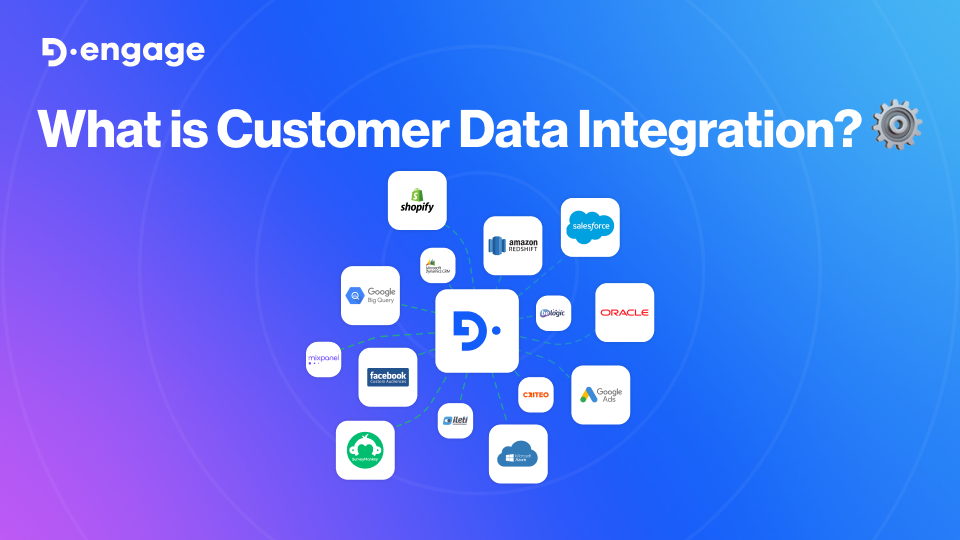Customer data integration (CDI) is a crucial process in the digital marketing landscape, aimed at unifying customer data from various sources to provide a comprehensive, single view of each customer. By consolidating this data, organizations can derive valuable insights that drive personalized marketing strategies, enhance customer experiences, and foster lasting relationships.
Understanding Customer Data Integration
The Basics of CDI
Customer data integration involves combining data from multiple touchpoints such as CRM systems, email marketing platforms, social media channels, and transactional databases. This unified data allows businesses to create accurate customer profiles and deliver more targeted and relevant marketing campaigns.
Why is CDI Important?
- Enhanced Personalization:
With a holistic view of customer data, businesses can tailor their marketing efforts to meet individual customer needs and preferences. This leads to higher engagement and satisfaction.
- Improved Decision-Making:
Unified data provides actionable insights, enabling better decision-making and strategy formulation.
By centralizing customer data, organizations can streamline their marketing processes, reducing redundancy and improving efficiency.
Industry Analysis and Statistics
According to a report by Forbes, companies that adopt data-driven marketing are six times more likely to be profitable year-over-year.
Research by PwC indicates that 73% of all people point to customer experience as an important factor in their purchasing decisions.
A study by McKinsey found that organizations leveraging customer data effectively can achieve 5-10% revenue growth.
Gartner predicts that by 2025, AI and machine learning, both heavily reliant on integrated customer data, will boost personalized marketing strategies, leading to a 20% increase in sales for those who use them effectively.
Harvard Business Review reports that increasing customer retention rates by 5% can increase profits by 25% to 95%, underscoring the importance of CDI in retention strategies.
Implementing Customer Data Integration
Steps to Effective CDI
Gather data from all customer touchpoints, including online and offline sources. Tools like Dengage offer comprehensive solutions for data collection and management.
Ensure that the data is accurate and free of duplicates. This step is critical for maintaining data integrity.
Use advanced platforms to integrate data from various sources. This can involve using APIs, data warehouses, or specialized CDI software.
Analyze the integrated data to uncover patterns and insights. These insights can inform personalized marketing strategies and improve customer engagement.
Implement marketing strategies based on the insights derived from the data analysis. Continuously monitor and adjust these strategies for optimal results.
Tools and Solutions for CDI
Dengage’s Role in CDI
At Dengage, we offer cutting-edge tools to help businesses integrate and leverage their customer data effectively. Our platform supports comprehensive data collection, real-time analytics, and advanced personalization, ensuring that your marketing efforts are data-driven and customer-centric.
Benefits of Customer Data Integration
1. Unified Customer View
CDI provides a single, unified view of each customer, enabling businesses to understand their behaviors, preferences, and needs better. This holistic view is essential for delivering personalized marketing experiences.
2. Enhanced Customer Engagement
By leveraging integrated customer data, businesses can create more relevant and timely marketing messages, significantly enhancing customer engagement and loyalty.
3. Streamlined Operations
CDI helps in reducing data silos within an organization, leading to more efficient operations. Streamlined data flow ensures that all departments have access to accurate and up-to-date customer information.
4. Improved Compliance
With regulations like GDPR and CCPA, maintaining accurate and secure customer data is more important than ever. CDI helps organizations comply with these regulations by ensuring data integrity and security.
5. Increased ROI
Effective use of integrated customer data can lead to more successful marketing campaigns, higher conversion rates, and increased ROI. By targeting the right audience with the right message at the right time, businesses can maximize their marketing spend.
Conclusion
Customer data integration is a foundational element of modern digital marketing strategies. By unifying data from various sources, businesses can gain a comprehensive understanding of their customers, leading to improved personalization, enhanced customer experiences, and increased profitability. At Dengage, we are committed to providing innovative solutions that help organizations harness the power of customer data integration.
To learn more about how you can implement effective CDI strategies, explore our product features and solutions today. Embrace the power of data-driven insights to create meaningful and lasting relationships with your audience.
